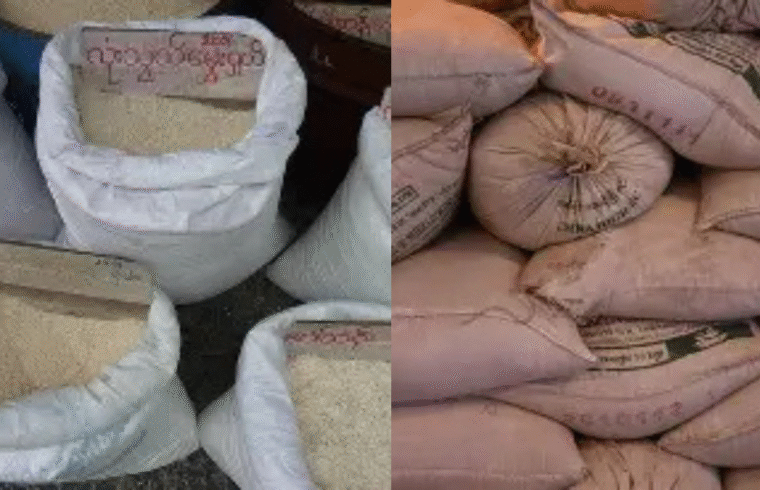The price of rice has fallen sharply across major markets in Lagos State, driven by increased imports and improved local harvests. While consumers are celebrating the relief, many traders say they are suffering heavy losses.
According to findings by the News Agency of Nigeria (NAN), a 50kg bag of rice now sells for between ₦55,000 and ₦70,000, depending on the brand and market location.
At markets such as Oyingbo, Arena (Oshodi), FESTAC Town, and Mile 12, local rice that sold for about ₦85,000 in January now costs between ₦60,000 and ₦70,000, while foreign brands have dropped from ₦95,000 to between ₦65,000 and ₦75,000.
Some traders expressed frustration over the losses caused by the sudden price drop.
At the Arena Market, rice dealer Mrs. Precious Okoro said she has been forced to sell at prices lower than her purchase cost.
“We are selling at a loss. I bought several bags at ₦80,000 and ₦85,000 early this year, and now I have to sell them for as low as ₦65,000. The fall came suddenly, and it’s been tough for us,” she lamented.
Okoro also urged the government to support local farmers with incentives, storage infrastructure, and better distribution systems to sustain affordable prices while protecting producers from losses.
At the FESTAC Town Market, Mrs. Edith Nwaruh listed current retail prices as follows:
- Pretty Lady – ₦57,000
- Mama Africa – ₦62,000
- Mama Gold – ₦67,000
- Big Bull Premium – ₦73,000
While the drop in prices offers relief to Nigerian households ahead of the festive season, market analysts say the trend underscores the need for balanced trade and agricultural policies to ensure both consumer welfare and farmer sustainability.
Farmers Attribute Rice Price Crash to Border Reopening
Rice farmers and traders have attributed the recent drop in rice prices to the reopening of Nigeria’s land borders, which has led to a surge in imported rice flooding the local market.
A rice farmer who spoke anonymously said the influx of both imported and locally produced rice caused the price crash.
“The market is flooded with imported and locally produced rice. That’s why prices have dropped, but this may not last. By December, prices could rise again because supply is unstable,” he cautioned.
At the Mile 12 Market, trader Mr. Odion Michael described the situation as a “double-edged sword” — good news for consumers but troubling for sellers.
“Consumers are happy, but traders are weeping. We want prices to be stable, not jumping or falling suddenly. Price stability helps us to plan our business,” he said.
For many households, however, the price drop has been a welcome relief.
Mrs. Andriana Okoromaro, a consumer, said the lower cost has made it possible for her to buy more for her family.
“At least rice is affordable again. I used to buy a half bag because it was too expensive. Now I can buy a full bag for the family. It’s a big relief.”
Another shopper, Mrs. Oluwaseun Alade, expressed hope that the downward trend would continue into the festive season.
“Rice is essential during Christmas and New Year. This drop, if sustained, means more families can celebrate without worry,” she said.
However, not everyone sees the development as entirely positive. Mrs. Ngozi Okolie, another trader, pointed out that even with lower prices, economic hardship has kept sales low.
“People don’t have much money, even with cheaper goods. The economy is slow, so even when prices fall, sales are not what they used to be,” she noted.
While consumers enjoy temporary relief, experts warn that price stability will depend on consistent supply, effective border management, and support for local farmers to remain competitive.












